UNHCR for redoubling of humanitarian aid in Bangladesh
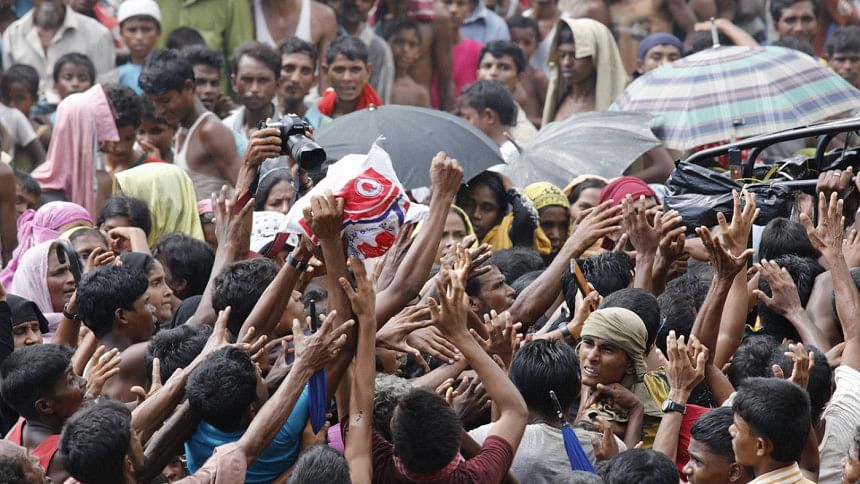
Expressing concern over conditions of 436,000 Rohingya refugees who have fled to Bangladesh from Myanmar, the UNHCR today called for a redoubling of the international humanitarian response in Bangladesh.
Addressing a press briefing in Geneva, UNHCR spokesperson Adrian Edwards said the conditions of Rohingya refugees in last month could still deteriorate.
As part of its contribution to the response led by the Bangladeshi authorities, he informed UNHCR has flown in its fourth humanitarian airlift.
The UNHCR-chartered Boeing 777 cargo jet, loaded with 100 metric tonnes of aid, landed in Dhaka around 12:30pm today. As shelter needs in south-eastern Bangladesh are acute, this flight has been loaded with shelter materials only. Two more aid flights are being scheduled.
Despite every effort by those on the ground, the massive influx of people seeking safety has been outpacing capacities to respond, and the situation for these refugees has still not stabilised. Many of those who have arrived recently are deeply traumatised. Despite having found refuge in Bangladesh, they are still exposed to enormous hardship.
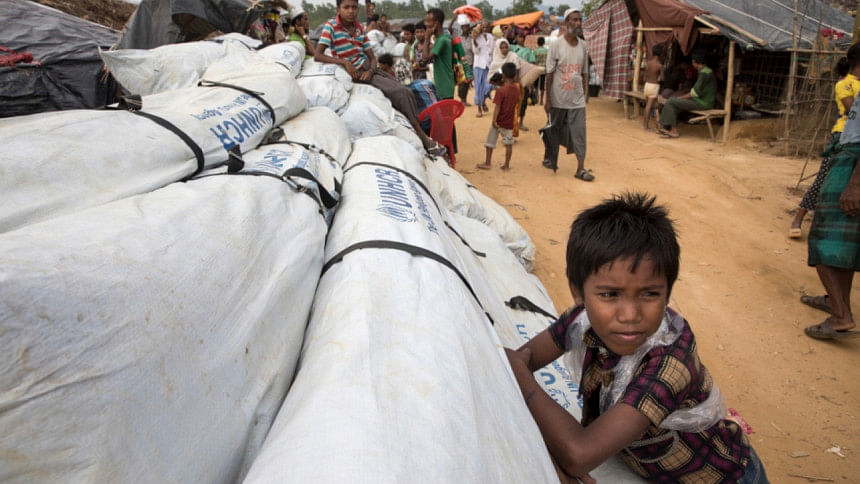
At the request of the Bangladesh authorities, UNHCR and our partners have scaled up protection and life-saving support to the new arrivals in Kutupalong and Nayapara camps, and extended this support to the informal settlements surrounding these camps. UNHCR is also distributing emergency shelter kits, kitchen sets, jerry cans, sleeping mats, solar lamps, and other non-food items.
"We continue to identify and support the most vulnerable refugees such as unaccompanied children, women, the elderly and disabled, who are in urgent need of shelter, food, water, and healthcare."
"In the last week, we and partners distributed hygiene kits to some 1,900 women, while each day an average of 9,900 people received meals through community kitchens, 2,600 received other hot meals, and 4,700 received high energy biscuits," said the Spokesperson.
As the population in the Kutupalong and Nyapara camps has now doubled, so have the needs for clean drinking water. In the last few weeks, we've constructed additional seven deep tube-wells, 13 shallow tube-wells, and 116 latrine chambers in the two camps to help deal with this increase.
During his visit to Bangladesh this past weekend, UN High Commissioner for Refugees Filippo Grandi discussed the importance of working towards solutions with Bangladeshi authorities, but emphasised that for now, the immediate focus has to remain on fast, efficient and substantial increase of support to those who are so desperately in need.

 For all latest news, follow The Daily Star's Google News channel.
For all latest news, follow The Daily Star's Google News channel. 

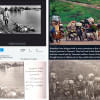
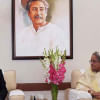
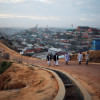
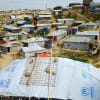
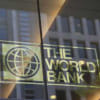


Comments